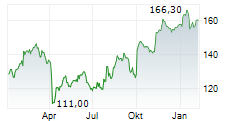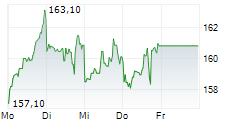
3 February 2025
Imfinzi recommended for approval in the EU by CHMP as first and only immunotherapy for limited-stage small cell lung cancer
Recommendation based on ADRIATIC Phase III trial results which showed a 27% reduction in the risk of death versus placebo
AstraZeneca's Imfinzi (durvalumab) has been recommended for approval in the European Union (EU) as monotherapy for the treatment of adults with limited-stage small cell lung cancer (LS-SCLC) whose disease has not progressed following platinum-based chemoradiation therapy (CRT).
The Committee for Medicinal Products for Human Use (CHMP) of the European Medicines Agency (EMA) based its positive opinion on the results from the ADRIATIC Phase III trial, which were published in The New England Journal of Medicine.
Results showed Imfinzi reduced the risk of death by 27% versus placebo (based on an overall survival [OS] hazard ratio [HR] of 0.73; 95% confidence interval [CI] 0.57-0.93; p=0.0104). Estimated median OS was 55.9 months for Imfinzi versus 33.4 months for placebo. An estimated 57% of patients treated with Imfinzi were alive at three years compared to 48% for placebo.
Imfinzi also reduced the risk of disease progression or death by 24% (based on a progression-free survival [PFS] HR of 0.76; 95% CI 0.61-0.95; p=0.0161) versus placebo. Median PFS was 16.6 months for Imfinzi versus 9.2 months for placebo. An estimated 46% of patients treated with Imfinzi had not experienced disease progression at two years compared to 34% for placebo.
SCLC is a highly aggressive form of lung cancer.1 LS-SCLC typically recurs and progresses rapidly, despite initial response to standard-of-care chemotherapy and radiotherapy.2-3 The prognosis for LS-SCLC is particularly poor, as only 15-30% of patients will be alive five years after diagnosis.4
Suresh Senan, PhD, Professor of Clinical Experimental Radiotherapy at the Amsterdam University Medical Centers, The Netherlands, and principal investigator in the trial, said: "ADRIATIC was the first Phase III trial in decades to demonstrate a survival benefit in limited-stage small cell lung cancer, reducing the risk of death by 27 per cent in patients treated with durvalumab versus placebo. Today's positive recommendation from the CHMP means that our patients in Europe are one step closer to gaining access to this practice-changing treatment regimen."
Susan Galbraith, Executive Vice President, Oncology Haematology, R&D, AstraZeneca, said: "With 57 per cent of patients still alive at three years in the ADRIATIC trial, Imfinzi has the potential to transform treatment for people with limited-stage small cell lung cancer. If approved, these patients will have access to immunotherapy for the first time, redefining expectations of survival outcomes in this setting."
The safety profile for Imfinzi was generally manageable and consistent with the known profile of this medicine. No new safety signals were observed.
Imfinzi is approved in the US and several other countries in this setting based on the ADRIATIC results. Regulatory applications are currently under review in Japan and several other countries in this indication.
Notes
Small cell lung cancer
Lung cancer is the leading cause of cancer death among both men and women, accounting for about one-fifth of all cancer deaths.5-6 Lung cancer is broadly split into non-small cell lung cancer (NSCLC) and SCLC, with about 15% of cases classified as SCLC.7
LS-SCLC (Stage I-III) is classified as SCLC that is generally only in one lung or one side of the chest.8 LS-SCLC accounts for approximately 30% of SCLC diagnoses, with an estimated 8,000 people treated for LS-SCLC across the five major European countries each year.9-10 The prognosis for patients with LS-SCLC remains poor despite curative-intent treatment with standard-of-care concurrent CRT (cCRT).9
ADRIATIC
The ADRIATIC trial is a randomised, double-blind, placebo-controlled, multi-centre global Phase III trial evaluating Imfinzi monotherapy and Imfinzi plus Imjudo (tremelimumab) versus placebo in the treatment of 730 patients with LS-SCLC who had not progressed following cCRT. In the experimental arms, patients were randomised to receive a 1500mg fixed dose of Imfinzi with or without Imjudo 75mg every four weeks for up to four doses/cycles each, followed by Imfinzi every four weeks for up to 24 months.
The dual primary endpoints were PFS and OS for Imfinzi monotherapy versus placebo. Key secondary endpoints included OS and PFS for Imfinzi plus Imjudo versus placebo, safety and quality of life measures. The trial included 164 centres in 19 countries across North and South America, Europe and Asia.
Imfinzi
Imfinzi (durvalumab) is a human monoclonal antibody that binds to the PD-L1 protein and blocks the interaction of PD-L1 with the PD-1 and CD80 proteins, countering the tumour's immune-evading tactics and releasing the inhibition of immune responses.
In addition to its indication in LS-SCLC, Imfinzi is the only approved immunotherapy and the global standard of care in the curative-intent setting of unresectable, Stage III NSCLC in patients whose disease has not progressed after CRT. Additionally, Imfinzi is approved as a perioperative treatment in combination with neoadjuvant chemotherapy in resectable NSCLC; in combination with chemotherapy (etoposide and either carboplatin or cisplatin) for the treatment of extensive-stage SCLC; and in combination with a short course of Imjudo and chemotherapy for the treatment of metastatic NSCLC.
Imfinzi is also approved in combination with chemotherapy (gemcitabine plus cisplatin) in locally advanced or metastatic biliary tract cancer and in combination with Imjudo in unresectable hepatocellular carcinoma (HCC). Imfinzi is also approved as a monotherapy in unresectable HCC in Japan and the EU.
Imfinzi is also approved in combination with chemotherapy (carboplatin and paclitaxel) followed by Imfinzi monotherapy in primary advanced or recurrent endometrial cancer that is mismatch repair deficient (dMMR) in the US. In the EU, Imfinzi plus chemotherapy followed by Lynparza (olaparib) and Imfinzi is approved for patients with mismatch repair proficient (pMMR) advanced or recurrent endometrial cancer, and Imfinzi plus chemotherapy followed by Imfinzi alone is approved for patients with dMMR disease. In Japan, Imfinzi plus chemotherapy followed by Imfinzi monotherapy has also been approved as 1st-line treatment in primary advanced or recurrent endometrial cancer, and Imfinzi plus chemotherapy followed by Imfinzi and Lynparza has been approved for patients with pMMR disease.
Since the first approval in May 2017, more than 374,000 patients have been treated with Imfinzi. As part of a broad development programme, Imfinzi is being tested as a single treatment and in combinations with other anti-cancer treatments for patients with SCLC, NSCLC, bladder cancer, breast cancer, several gastrointestinal and gynaecologic cancers, and other solid tumours.
AstraZeneca in lung cancer
AstraZeneca is working to bring patients with lung cancer closer to cure through the detection and treatment of early-stage disease, while also pushing the boundaries of science to improve outcomes in the resistant and advanced settings. By defining new therapeutic targets and investigating innovative approaches, the Company aims to match medicines to the patients who can benefit most.
The Company's comprehensive portfolio includes leading lung cancer medicines and the next wave of innovations, including Tagrisso (osimertinib) and Iressa (gefitinib); Imfinzi and Imjudo; Enhertu (trastuzumab deruxtecan) and Datroway (datopotamab deruxtecan) in collaboration with Daiichi Sankyo; Orpathys (savolitinib) in collaboration with HUTCHMED; as well as a pipeline of potential new medicines and combinations across diverse mechanisms of action.
AstraZeneca is a founding member of the Lung Ambition Alliance, a global coalition working to accelerate innovation and deliver meaningful improvements for people with lung cancer, including and beyond treatment.
AstraZeneca in immuno-oncology (IO)
AstraZeneca is a pioneer in introducing the concept of immunotherapy into dedicated clinical areas of high unmet medical need. The Company has a comprehensive and diverse IO portfolio and pipeline anchored in immunotherapies designed to overcome evasion of the anti-tumour immune response and stimulate the body's immune system to attack tumours.
AstraZeneca strives to redefine cancer care and help transform outcomes for patients with Imfinzi as a monotherapy and in combination with Imjudo as well as other novel immunotherapies and modalities. The Company is also investigating next-generation immunotherapies like bispecific antibodies and therapeutics that harness different aspects of immunity to target cancer, including cell therapy and T-cell engagers.
AstraZeneca is pursuing an innovative clinical strategy to bring IO-based therapies that deliver long-term survival to new settings across a wide range of cancer types. The Company is focused on exploring novel combination approaches to help prevent treatment resistance and drive longer immune responses. With an extensive clinical programme, the Company also champions the use of IO treatment in earlier disease stages, where there is the greatest potential for cure.
AstraZeneca in oncology
AstraZeneca is leading a revolution in oncology with the ambition to provide cures for cancer in every form, following the science to understand cancer and all its complexities to discover, develop and deliver life-changing medicines to patients.
The Company's focus is on some of the most challenging cancers. It is through persistent innovation that AstraZeneca has built one of the most diverse portfolios and pipelines in the industry, with the potential to catalyse changes in the practice of medicine and transform the patient experience.
AstraZeneca has the vision to redefine cancer care and, one day, eliminate cancer as a cause of death.
AstraZeneca
AstraZeneca (LSE/STO/Nasdaq: AZN) is a global, science-led biopharmaceutical company that focuses on the discovery, development, and commercialisation of prescription medicines in Oncology, Rare Diseases, and BioPharmaceuticals, including Cardiovascular, Renal & Metabolism, and Respiratory & Immunology. Based in Cambridge, UK, AstraZeneca's innovative medicines are sold in more than 125 countries and used by millions of patients worldwide. Please visit astrazeneca.com and follow the Company on social media @AstraZeneca.
Contacts
For details on how to contact the Investor Relations Team, please click here. For Media contacts, click here.
References
1. National Cancer Institute. NCI Dictionary - Small Cell Lung Cancer. Available at: https://www.cancer.gov/publications/dictionaries/cancer-terms/def/small-cell-lung-cancer. Accessed February 2025.
2. Qin A, Kalemkerian GP. Treatment Options for Relapsed Small-Cell Lung Cancer: What Progress Have We Made? J Oncol Pract. 2018;14(6):369-370.
3. Cheng Y, et al. Durvalumab after Chemoradiotherapy in Limited-Stage Small-Cell Lung Cancer. N Engl J Med. 2024;391(14):1313-1327.
4. Bebb DG, et al. Symptoms and Experiences with Small Cell Lung Cancer: A Mixed Methods Study of Patients and Caregivers. Pulm Ther. 2023;9:435-450.
5. World Health Organization. International Agency for Research on Cancer. Lung Fact Sheet. Available at: https://gco.iarc.who.int/media/globocan/factsheets/cancers/15-trachea-bronchus-and-lung-fact-sheet.pdf. Accessed February 2025.
6. World Health Organization. International Agency for Research on Cancer. World Fact Sheet. Available at: https://gco.iarc.who.int/media/globocan/factsheets/populations/900-world-fact-sheet.pdf. Accessed February 2025.
7. LUNGevity Foundation. Types of Lung Cancer. Available at: https://www.lungevity.org/for-patients-caregivers/lung-cancer-101/types-of-lung-cancer. Accessed February 2025.
8. American Cancer Society. Small Cell Lung Cancer Stages. Available at: https://www.cancer.org/cancer/types/lung-cancer/detection-diagnosis-staging/staging-sclc.html. Accessed February 2025.
9. Senan S, et al. ADRIATIC: A phase III trial of durvalumab ± tremelimumab after concurrent chemoradiation for patients with limited stage small cell lung cancer. Ann Oncol. 2019;30(suppl. 2):ii25.
10. AstraZeneca PLC. Investor Relations Epidemiology Spreadsheet. Available at: https://www.astrazeneca.com/investor-relations.html. Accessed February 2025.
??Adrian Kemp?
Company Secretary?
AstraZeneca PLC?
This information is provided by RNS, the news service of the London Stock Exchange. RNS is approved by the Financial Conduct Authority to act as a Primary Information Provider in the United Kingdom. Terms and conditions relating to the use and distribution of this information may apply. For further information, please contact rns@lseg.com or visit www.rns.com.



